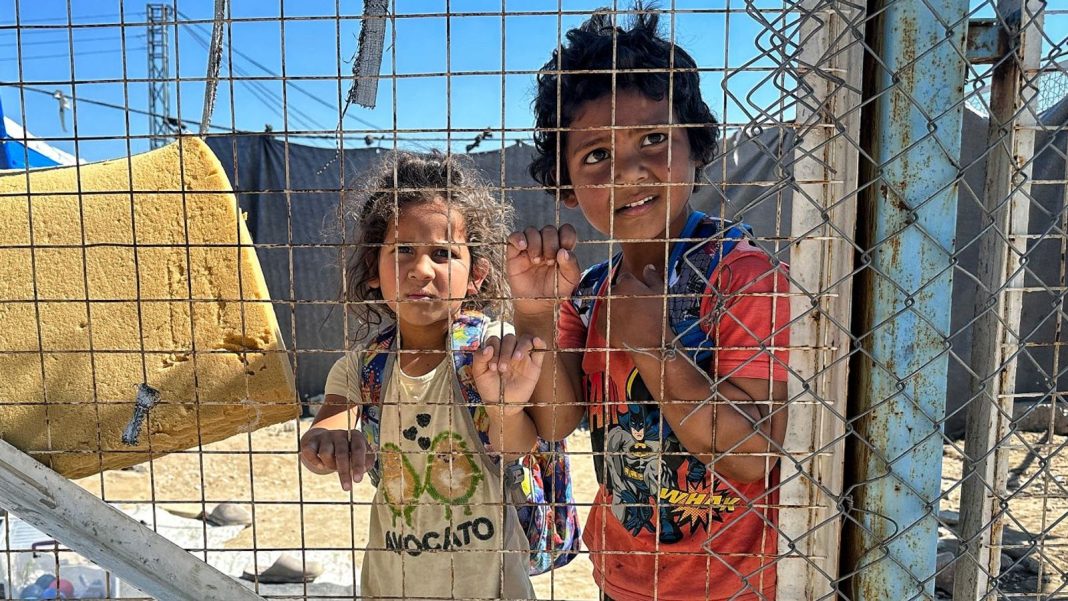Tens of thousands of women, many of them Western and once married to Islamic State men, are still being held in two closed tented camps in northeast Syria nearly five years after the fall of the extremist terror group.
Shamima Begum – who ran away to join IS while still a teenager at school in east London – is not the only woman to be effectively disowned and abandoned by her home country.
We found dozens of families who once lived in the so-called IS caliphate urging their governments to rescue them from the barricaded camps manned by armed guards where they’re now being held in northeast Syria.
Ms Begum, who last week lost her latest legal challenge in London’s High Court challenging the decision to strip her of her British citizen status, opted not to talk to us when we arrived at the smaller of the two camps, Al Roj.
The 24-year-old, whose lawyers are arguing she was trafficked to Syria whilst still a minor, took off when she spotted us, running through the maze of tents to avoid our meeting.
But we found many others desperate to talk after what they say are several agonising years of not being heard and nothing done to help them.
‘We’re humans, not animals’
We spoke to British, Australian, Belgian, German, Dutch and Caribbean women who all insist they and their children are being punished for the sins of their partners and fathers.
Many claimed they’d been raped or tricked into going to Syria and in some cases trafficked. All said they couldn’t escape.
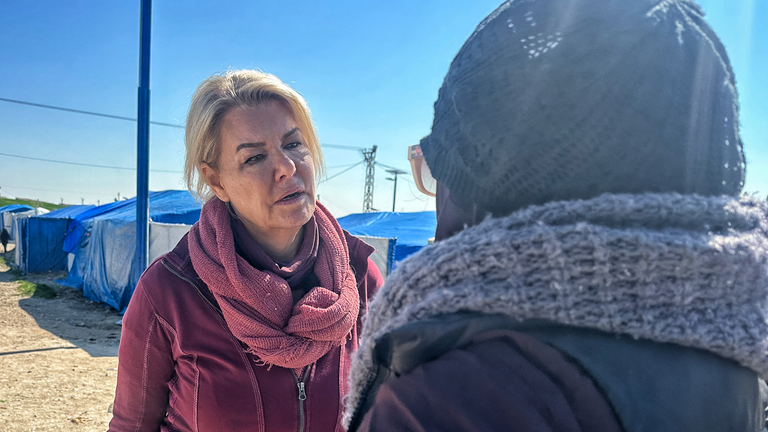
Sky News’ Alex Crawford speaks to a resident from the UK
Most of the Western women and their children are in Al Roj where they’ve been without electricity for the past month and where conditions are brutally tough.
“We are human beings, not animals at the end of the day,” one Australian mother-of-three told us on condition of anonymity because she’s in the middle of a legal process to be repatriated.
“An animal wouldn’t be able to withstand these conditions. My son nearly died last year… and my government is aware of this!”
She went on: “Not just the children but most of the women here are being punished for a decision that was made on their behalf…decisions we didn’t make ourselves.
“And our government, even though we’ve reached out continuously is refusing to acknowledge that their citizens are still here trapped in the camps. Australian-born children are still here.”
Multiple countries saw their citizens travel to the region to answer the IS call to create a caliphate around the year 2014.
The terror group went on to take over huge swathes of Syria and Iraq, imposing a harsh and terrifying version of Sharia law, carrying out executions and crushing any form of dissent.
The IS fighters slaughtered thousands of men from the ethnic Yazidi group because they view them as devil worshippers – and went onto kidnap thousands of Yazidi women, turning them into slaves and brutalising them for years.
More than two thousand Yazidi women are still missing and believed to remain in captivity with IS sleeper cells ten years after IS began their massacre.
‘Let us come back’
One British woman from Leeds told us how she was persuaded to go to Syria by her husband who was from Birmingham but has since died in the fighting which followed. Her seven-year-old son Adam was born in Raqqa, the capital of the IS caliphate in Syria.
“It was a bad mistake,” she said of her decision, “but I want to go back home”.
“There are no schools here,” she said. “No reading or writing – nothing, and there are no doctors. No, don’t do this to Adam, he’s innocent.”
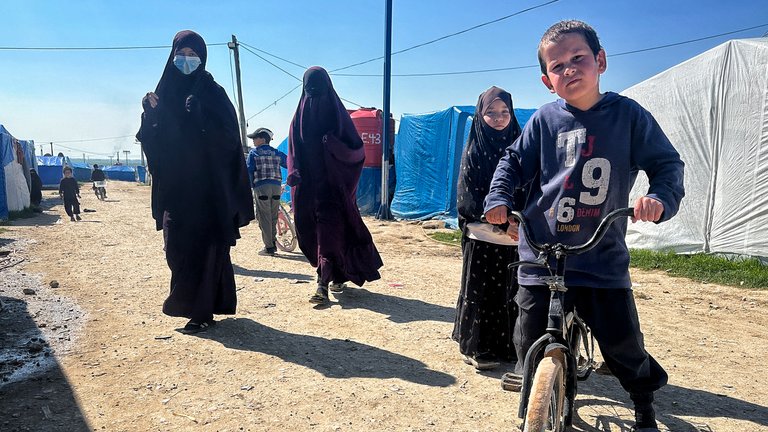
She too asked not to be named after advice from lawyers but appealed to the prime minister to let her return, saying she was prepared to stand trial and face any legal consequences.
“Let us come back,” she begged. “My family, my mum, my dad, my brothers all live in England and I want to come back and face trial there… five years I’ve been here. I am tired and I’m sick.”
She walks with a crutch and is paralysed down one side after the vehicle she was travelling in around Baghouz was hit during the fighting to dislodge IS and she was injured.
We go on to hear her story repeated many times with a range of different nationalities telling us they’d been forgotten or dumped by their governments. Casandra Bodart, a Belgian national with blonde hair and wearing a T-shirt and jeans told us she realised soon after she arrived in Syria that she’d made a terrible mistake.
“For a long time, I tried to escape from there,” she told us.
“But my husband didn’t want me to because it’s like radical you know in the ideology of the Islamic State [to leave your husband] and he told me, if you try to escape I will kill you with my hands.”
‘I tried to run away twice’
Zakija Kacar told us she lived in Germany for 29 years, had a job and gave birth to two children there before being tricked by her husband and taken to Raqqa.
“I tried to run away two times but they caught me and they beat me – then where could I go? I stayed and then he died after four months and I was pregnant so what could I do?”

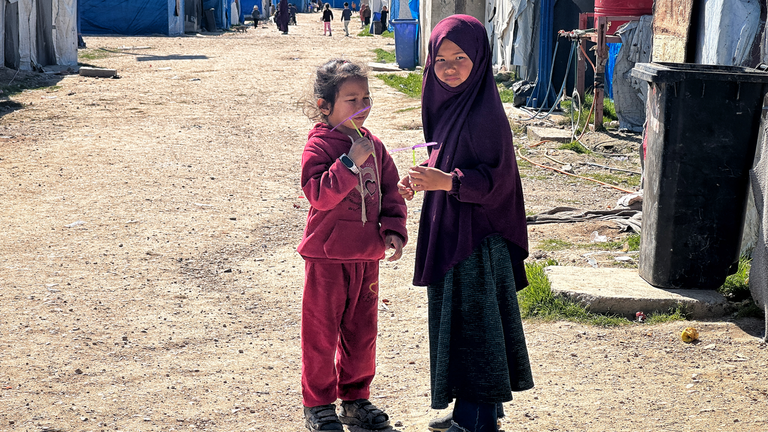
Read more:
IS’s ‘sophisticated’ propaganda campaign
Two shot dead in public execution
She says she was forced to marry another man she didn’t know or love and give birth to two more children, one in Al Roj.
Her five-year-old youngest daughter has not known any life outside the fences and armed guards of Al Roj camp.
“I hope they can give me a second chance,” she said.
Her ten-year-old who was born in Stuttgart has forgotten her German and now speaks Arabic.
Safija wants to study to be a doctor but “here is not good,” she told us. “We are trapped like chickens. I want to go out and go to parks.”
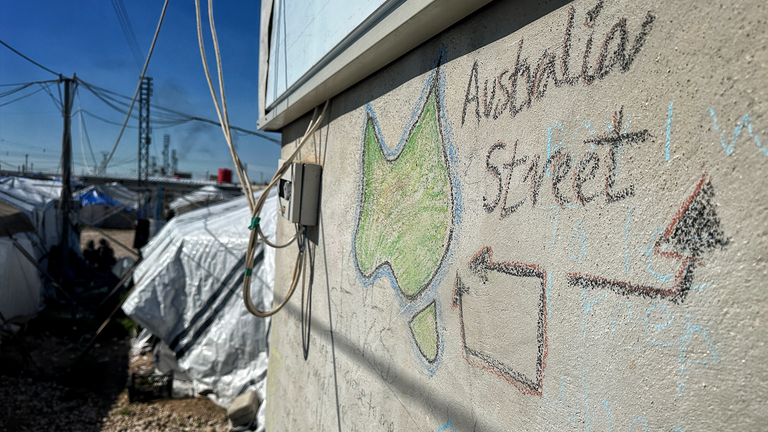
‘My kids have done nothing wrong’
The overwhelming bulk of the camp’s residents are children and a string of human rights groups and aid agencies have condemned the conditions in both camps as well as what they call the arbitrary detention of minors for what their parents might have done.
No one in the camps has stood trial or been questioned in a court over any crimes they might have committed.
UN experts said in a report last year: “The mass detention of children in northeast Syria for what their parents may have done is an egregious violation of the Convention on the Rights of the Child, which prohibits all forms of discrimination and punishment of a child based on the status, activities, expressed opinions, or beliefs of their parents.”
In one section of the camp called Australia Street because of the domination of Australians living there, there are rainbows and painted maps of Australia.
One mother from Melbourne called Kirsty Rosse-Emile told us she had two small children, aged seven and four who she desperately wants to take back home.
“My kids have done absolutely nothing wrong. My daughter was two years old when we came here and they know nothing and I’m trying to protect them from everything.”


